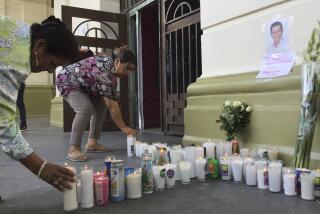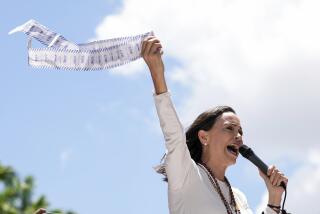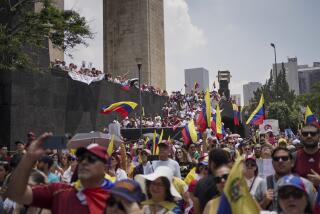Despite ban on protests, demonstration continues in Venezuela as government arrests an opposition mayor
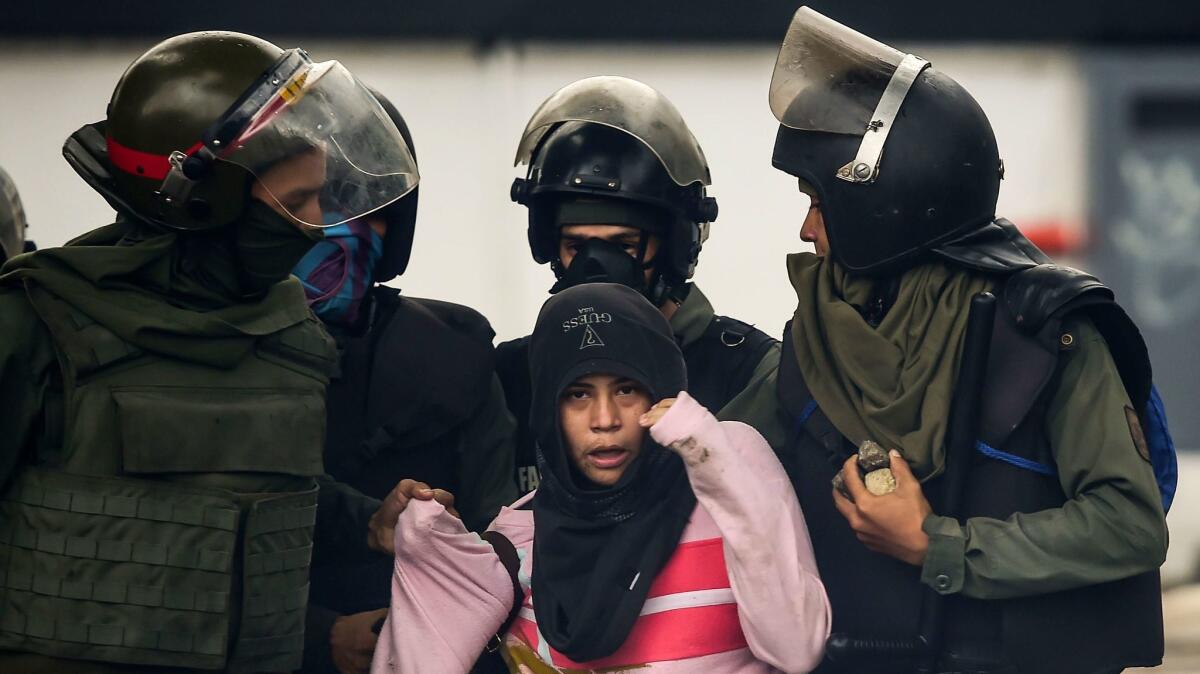
Reporting from CARACAS, Venezuela — With tensions rising ahead of Sunday’s controversial vote to elect a body to write a new constitution, Venezuelan authorities on Friday arrested the mayor of the country’s fourth largest city for allegedly failing to clear antigovernment barricades from city streets.
Officials also raised the death toll from four months of nationwide protests against President Nicolas Maduro’s government by two, to 108. More than 3,000 people have been injured in clashes and more than 4,500 arrested in street protests that have grown increasingly violent.
The dead were identified as Eduardo Gil Rodriguez, 53, who was killed by a gunshot Thursday night in western Tachira state, and police officer Oneiver Quinones, who was fatally shot in central Merida state. His age was not disclosed.
Barquisimeto Mayor Alfredo Ramos, a vocal opponent of Maduro and the vote to elect delegates to a constitutional assembly, was arrested in his office Friday afternoon by officers of the SEBIN police intelligence agency. Earlier, the Supreme Court sentenced him to 15 months in prison and disqualified him from running again for mayor for failing to keep his city’s streets barricade-free.
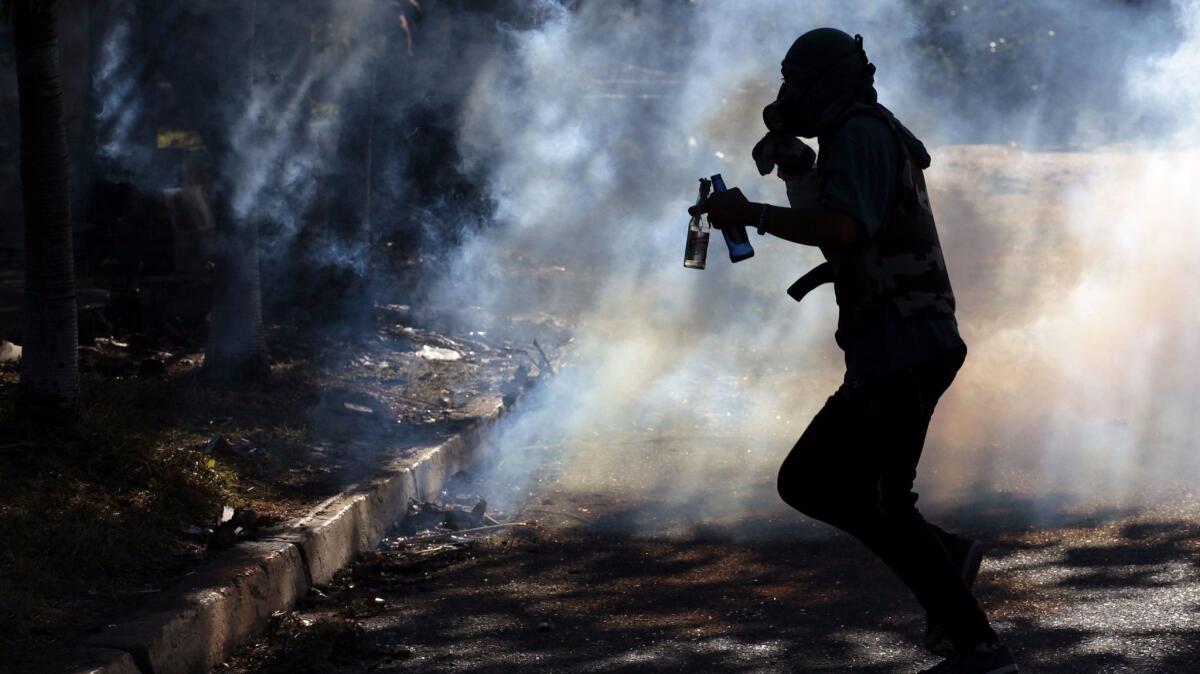
Barquisimeto, population 2 million, has been the scene of intense street fighting between protesters and Venezuelan police and national guard members. Ramos and other opposition leaders say a new constitution proposed by Maduro is an illegal maneuver to sideline the opposition-controlled National Assembly and perpetuate chavismo — the political philosophy of Maduro’s mentor, the late President Hugo Chavez.
A new poll released Friday by the Datanalisis firm found 72% of all Venezuelans oppose a new constitution.
The Maduro government banned all street protests through Sunday, threatening violators with prison sentences of up to 10 years, but protesters still blocked a dozen major thoroughfares in the capital, Caracas.
Protests have been constant since the Supreme Court in late March transferred legislative powers from the National Assembly to Maduro. Although the ruling was partially rescinded, street protests have continued over food scarcities, rising crime and Maduro’s autocratic actions, including what some describe as an illegal effort to rewrite the constitution.
In Caracas on Friday, Maduro opponents in several neighborhoods, from affluent Altamira to working-class Petare, used bricks and trash to erect dozens of barricades, which have become symbols of resistance.
The Democratic Unity coalition of opposition parties called on protesters to occupy several main streets on Sunday to obstruct the vote, despite the government’s warning of harsh penalties.
“They are mistaken, the people have no fear and will not stop struggling in the streets of Venezuela,” said opposition legislator Freddy Guevara.
Henrique Capriles, the governor of Miranda state whom the Supreme Court in April disqualified from running for future elective office for alleged mismanagement of the state budget, called on protesters to flood the streets to protest the vote.
“All democratic people who want change, come out this Sunday,” Capriles said.
Special correspondents Mogollon and Kraul reported from Caracas and Bogota, Colombia, respectively.
ALSO
Venezuela tragedy: 15 images capture a nation’s sorry and turmoil
Another victim of Venezuela’s unrest: Caracas’ once-renowned zoo
More to Read
Sign up for Essential California
The most important California stories and recommendations in your inbox every morning.
You may occasionally receive promotional content from the Los Angeles Times.
